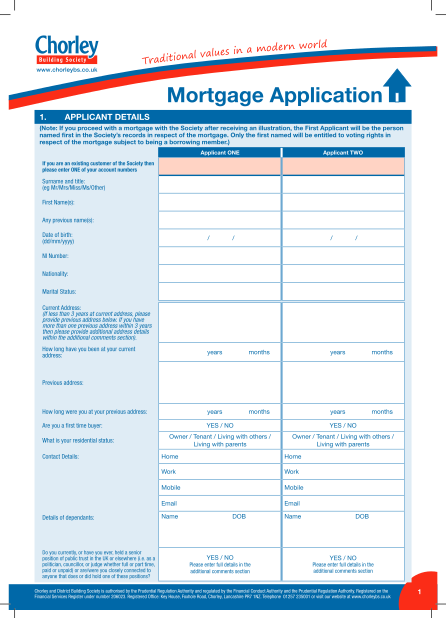Dreaming of building your perfect home? Discover how ипотека на строительство could turn your construction plans into reality, with expert insights on securing the right mortgage for your project.
Understanding Construction Mortgages: The Basics
Construction mortgages, also known as self-build mortgages in the UK, differ significantly from traditional home loans. These specialised financial products are designed to support individuals who want to build their own homes rather than purchase existing properties. Unlike standard mortgages where funds are released in one lump sum, construction mortgages release money in stages as your build progresses. This staged approach helps manage risk for both the lender and borrower, ensuring funds are available exactly when needed throughout the construction process. Current data shows that self-build projects account for approximately 13,000 new homes annually in the UK, representing a growing sector of the housing market.
Types of Construction Mortgages Available in the UK
- Advance Stage Payment Mortgages: Funds are released at the beginning of each construction phase, ideal for those with limited cash flow
- Arrears Stage Payment Mortgages: Money is released after completion of each stage, typically requiring more upfront capital
- Custom Build Mortgages: Specifically designed for developments where the main structure is built by a contractor, with the homeowner completing the interior
- Package Company Mortgages: Tailored for builds managed by package companies, often offering more favourable terms
Eligibility Criteria and Requirements
Securing a construction mortgage in the UK requires meeting specific criteria and preparing comprehensive documentation. Lenders typically require a minimum deposit of 20-25% of the total project cost, though some may ask for up to 40%. Key requirements include:
- Clean credit history with a minimum credit score of 700
- Proof of income and ability to service the loan
- Detailed planning permission
- Architectural drawings and specifications
- Full cost breakdown and project timeline
- Professional certifications (architects, surveyors)
- Land ownership documentation or purchase agreement
The Application Process Explained
The application journey for a construction mortgage involves several crucial steps. First, you’ll need to arrange an initial consultation with a specialist mortgage advisor who understands self-build projects. They’ll assess your financial situation and help determine the most suitable lending options. The average application processing time is 4-6 weeks, though this can vary depending on the complexity of your project. You’ll need to submit:
- Detailed building plans and specifications
- Cost breakdowns for each construction phase
- Planning permission documentation
- Proof of income and employment
- Professional team credentials
Stage Payment Structure
Construction mortgages typically release funds in 5-7 stages, aligned with key construction milestones. Most lenders follow a standard structure, releasing approximately:
- Stage 1: 10% upon foundation completion
- Stage 2: 20% at wall plate level
- Stage 3: 25% when roof is wind and watertight
- Stage 4: 25% at first fix and plastering
- Stage 5: 20% upon completion
Key Considerations and Risk Management
Managing risks in a self-build project requires careful planning and comprehensive insurance coverage. Statistics show that 60% of construction projects exceed their initial budget, making contingency planning crucial. Essential considerations include:
- Site insurance and structural warranty
- Contractor’s all-risk insurance
- Public liability coverage
- Project contingency fund (typically 10-20% of total budget)
- Regular surveyor inspections
- Building regulations compliance checks
Government Schemes and Support
The UK government offers several initiatives to support self-builders. The Help to Build scheme, launched in 2022, provides equity loans of up to 20% (40% in London) of the total project cost. Additional support includes:
- Self-build registers maintained by local authorities
- Custom and Self Build Housing Act provisions
- VAT reclaim opportunities on qualifying materials
- Community Infrastructure Levy exemptions
Expert Tips for Success
Successfully navigating a construction mortgage requires careful planning and attention to detail. Industry experts recommend:
- Researching multiple lenders and comparing terms
- Building relationships with local planning authorities
- Maintaining detailed records of all communications and decisions
- Working with experienced professionals
- Creating a realistic timeline with built-in flexibility
Making Your Construction Dreams Reality
Taking the first step towards building your own home might seem daunting, but with proper planning and the right financial support, it’s an achievable goal. Recent studies show that 78% of self-builders report high satisfaction with their completed projects. Start by researching lenders specialising in construction mortgages, assembling your professional team, and developing a comprehensive project plan. Remember that successful self-builds typically result from thorough preparation, realistic budgeting, and careful management throughout the construction process. With the right approach and support, your dream home could be just around the corner.
FAQ
Какой доход вам нужен, чтобы получить одобрение на ипотеку в размере 400 000 долларов?
Чтобы с комфортом позволить себе ипотеку в 400 тыс., вам, скорее всего, понадобится годовой доход от 100 000 до 125 000 долларов , в зависимости от вашего финансового положения и условий ипотеки. Помните, то, что вы можете претендовать на кредит, не означает, что вы должны максимально растягивать свой бюджет.
Какой первоначальный взнос по ипотеке на строительство дома?
Первоначальный взнос. Обычно составляет 20% от стоимости проекта. В некоторых случаях подрядчик, строящий дом, может подтвердить расходы на материалы, что засчитывается как часть взноса. То есть, первоначальный взнос можно внести не деньгами, а чеками на уже закупленные материалы.
Какой размер первоначального взноса по кредиту на строительство?
Типичный первоначальный взнос по строительному кредиту составляет от 10% до 20% от общей стоимости проекта . Иногда по строительному кредиту может потребоваться даже первоначальный взнос более 20%.
Можно ли взять ипотеку на строительство дома без первоначального взноса?
Оформить ипотеку без первоначального взноса также можно под залог недвижимости. В таком случае в залоге будет не то жилье, которое вы приобретаете с помощью ипотечного кредита, а то, которое уже находится у вас в собственности. Предметом залога может быть квартира, частный жилой дом, апартаменты или участок земли.
Как работает строительство дома с использованием ипотеки?
Кредиторы обычно позволяют вам платить проценты только в процессе строительства с помощью строительно-постоянного кредита , что делает эти платежи доступными. Как только ваш дом будет достроен, вы начнете выплачивать стандартную ипотеку.
Sources
[1] https://www.sravni.ru/ipoteka/na-stroitelstvo-doma/
[2] https://blog.domclick.ru/ipoteka/post/kak-postroit-dom-po-semejnoj-ipoteke-sberbanka-ot-6
[3] https://www.gazprombank.ru/personal/take_credit/mortgage/7131239/


Leave a Reply